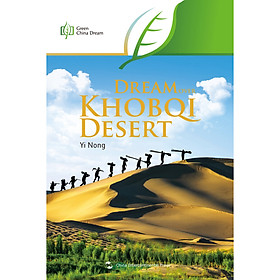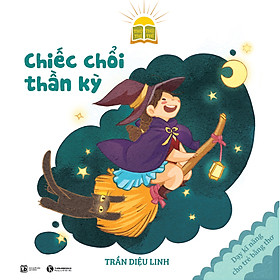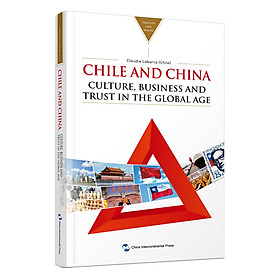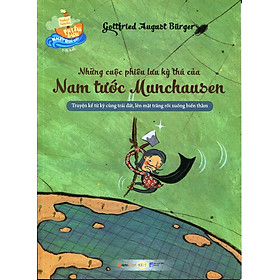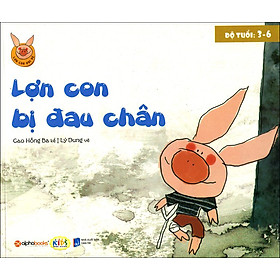Dream over Khobqi Desert
China has manifested an extraordinary competence in the leadership of desertification control, and has achieved lots of significant results. The Kubuqi International Desert Forum provides a...
SKU: 6286335007653
China has manifested an extraordinary competence in the leadership of desertification control, and has achieved lots of significant results. The Kubuqi International Desert Forum provides a platform for the world to exchange experience concerning afforestation and desertification control.
On the “Green China Dream” Responsibility Forum held at the headquarters of the United Nations Environment Programme (UNEP) in 2013, local cases of environmental protection from China won wide acclaim at the UNEP, earning preliminary recognition of the international community for the Chinese people’s unremitting efforts in building a green China.
The “Green China Dream” book series tells successful cases of China’s green economy and sustainable development in the form of documentary literature, exhibiting China’s commitment to the nation and her contribution to the world in environmental protection. This series comprises 6 books, published in both Chinese and English.
Dream over Khobqi Desert is a work of documentary literature. It records people’s effort to change the ecological environment in desert and to realize the green Chinese Dream. The book, featuring poetic language, presents the real story of Wang Wenbiao. Since the building of the first desert-crossing road when he was 29 years old, Wang has been leading the staff of Elion, spending the last 26 years greening the desert by growing grasses and trees. Thanks to their efforts, the bald and sandy desert has been turned into oases where lush grasses bend in the breeze, lakes ripple, and cattle and sheep graze. And in the city, the citizens of Beijing can once again enjoy clear water and blue skies.
Xiao Yinong, contemporary writer, is the author of the eight-volume Collected Works of Xiao Yinong and winner of Chuang Chung Wen Literature Prize, October Literature Prize and the Best Works Award. His works are good at reflecting the history and culture of the Ordos Plateau in the South Bank of the Yellow River, and features vivid characters and a majestic style. As a representative personage of the Educated Urban Youth Writers, he is a member of the National Committee of China Writers Association and Vice-chairman of the Inner Mongolia Writers Association.
Contents
Chapter I
Where the Dreams Started
Chapter II
The Story of Road Development
Chapter III
The Story of Conquering Desertification
Chapter IV
The Story of Licorice
Chapter V
The Story of Dessert Flowers
Chapter VI
The Story of Desert Poplars
Chapter VII
Those Living in the Desert
Chapter VIII
For the Future of the Desert
Chapter IX
The Story of Conquering Desertification (a sequel)
Chapter X
Let the Dreams Take Flight
Chapter XI
Depart with Another Self
Chapter XII
A Memoir Based on Firsthand Experiences
Postscript
III. Zhang Xiwang: Where There Is Greenery There Is Hope
“Like the resilient salix cheilophila, we will not die from thirsty and hunger. With a little of sunshine, we can live a good life.”
Zhang Xiwang
Zhang Xiwang is a celebrity in the Khobqi Desert. People could find him on TV in the CCTV program every day.
Seeing Zhang Xiwang on TV, his wife turned around to watch her husband carefully. For her, it was hard to imagine that this man, with whom she had been married for dozens of years, was on TV. She was not quite sure whether it was a dream or reality. His son and daughter, seeing their father was on TV, could not help but saying: “Dad has become a star.” Sometimes seeing himself on TV when he was having meals, Zhang Xiwang thought to himself that his image was not bad, so he did not disgrace other men in the Khobqi Desert.
Zhang Xiwang got on the TV because of planting trees in the Khobqi Desert. As a matter of fact, Zhang Xiwang became famous in Khobqi as early as in 2011.
At the beginning of that spring, Zhang Xiwang wanted to contract to plant trees in the desert. But he was refused because he could not make it without a team. Zhang Xiwang was not convinced and finally he contracted 1,100 mu (about 0.73 square kilometers) of land. The work was successfully completed in 43 days, so was the grass-planting project he contracted later on the bank of the Qixing Lake. Thus, the leaders looked at him in a new light: This guy was pretty good at making a living.
In 2012, the leader helped him contracting 1,200 mu (about 0.8 square kilometers) of land to plant salix cheilophila using the water jetting method. That piece of desert was badly short of water, so other foremen on the surrounding sites quit. “I will contract the land which you all have given up.” said Zhang Xiwang. With soaring enthusiasm from nowhere, Zhang Xiwang contracted about 8,000 acres of land.
Planting trees in the desert was more difficult than one could imagine. And not everyone could be a contractor.
The sites belonging to Zhang Xiwang were 7.5 kilometers away from the road and no wells could be built within a radius of two kilometers. Without wells, workers had to put drinking water in buckets and carrying them to the sites by trailer. Seeing the dune having no trace of green at all at the first sight, Zhang Xiwang felt a little bit frustrated because planting salix cheilophila in this place was too hard. However, he still decided to give it a try.
Saplings were transported to the sites by more than 30 workers with three trailers. A round trip in a day cost 700 yuan, a favored price Zhang got from friends he knew well. He planted trees by dry drilling (ground drill), which was relatively easy. Workers went on and off site by foot, which would take about two hours in a day. Thus they could not do so much work in one day.
One day a worker was lost at 10 o’clock at night. He was finally got in touch through cellphone and turned out to be found on the sites of other contractors. “Stay there and I will come to you immediately.” Zhang Xiwang drove the trailer to pick the worker up. It was midnight when Zhang Xiwang returned home. “This really scared me out because I took a great responsibility for him. If my workers got lost in the desert, what could I do? Fortunately, this time was a scare more than hurt.”
Zhang Xiwang was good-natured, but sometimes he got anxious. In 2013, he wanted to transport salix cheilophila into the desert but was stopped by some Mongolian. Although they soon had a quarrel in a few words, they finally settled this dispute. “Mongolian brothers have given me a great face and I thought they were nice from the bottom of my heart. We came here to make money with our cars coming and going every day which would undermine their pasture. So I took out 1000 yuan for compensation as an expression of our good will. But they refused, saying that we settled the dispute not for money and they are not particular about it.”
Previously, Zhang Xiwang did not know much about plants. But now, as planting trees for a long time, he was getting familiar to them, including populus euphratica and salix cheilophila planted in the desert in recent years. Since 2012, he came in contact with the hedysarum mongolicum and hedysarum scoparium. Now, he could be regarded as an amateur expert of psammophytes.
A reporter asked: “Have you count how many trees you have planted and how many areas do the trees cover over these years?”
Zhang Xiwang replied: “If you take mu as a measure, there is about two hundred thousand mu of land covered by my trees. I have been leading this team for six years. At the beginning we contracted 700 mu of land because we had no enough money at that time. By accumulation, we thoroughly changed our situation in 2012, when we contracted 8,000 mu (about 5.3 square kilometers) of land at once. In 2013, we had another 6,000 mu. Now, in 2014, we have planted trees on most of our land on the south. Besides, we try to plant 1,500 mu (about one square kilometer) of sacsaoul by the Qixing Lake for the first time. I did not know about it before, but I want to have a try and see whether they can survive.”
“You see, Director Han (Han Meifei) has deep feeling for the desert and he would say that the roots are very beautiful. So do you have some special love for these plants?”
“Of course. Last year, I visited the trees I had planted in 2011 by vehicles specially designed for driving in the desert. I felt heartened when I saw they grew well. All populus euphratica planted in last year survived. Touching the trunk of a populus euphratica, I thought to myself why you were so lucky to survive?”
“Can you estimate how much mu of trees you can plant in the future?”
“I do not know. I am 43 years old now. I believe I can plant trees for another decade judging from my good physical condition.”
“Have you ever thought about the goal that you are going to achieve in the coming decade?”
“Well, I do not have any goal personally. I received little education, so I do not have enough knowledge to look ahead in the future.”
The reporter laughed and Xiwang also smile. Speaking of the Chinese dream, which is somewhat difficult for him to understand, but Zhang Xiwang knew the greening Khobqi Desert is really down-to-earth.
From the Khobqi Desert to Chang’an Avenue
Chang’an Avenue, Beijing, the early summer of 2014: New buildings, accompanied by old ones, stand on both sides of the wide road. The highclass commercial buildings are home to the headquarters of top enterprises, multinationals and large listed companies, the workplaces of competent white-collar and gold-collar workers, and well-known entrepreneurs and corporation chairmen who often attend the major international conferences. Sitting at the top of their astonishing business empires, they have the power to influence an entire industry or even the world economy.
Located in Fuxingmen, West Chang’an Avenue, separated from the Cultural Palace of Nationalities by Chang’an Avenue, Chemsunny World Trade Center enjoys an excellent geographic location, benefiting from being in the center of three major business circles, i.e. West Chang’an Avenue, the Financial Street, and Xidan. In an office of the headquarters of Elion Resources Group on the sixth floor of the Building B, Chemsunny World Trade Center, a tall middle-aged man stands by the window, pondering. His name is Wang Wenbiao, the board chairman of Elion Resources Group.
In June, despite occasional smog,the sky in Beijingis a clear blue with sunshine most of the time. Today, it takes half a month to walk from the Khobqi Desert to Beijing, 3 to 4 hours on high-speed train, and only one hour by plane. However, Wang Wenbiao and his team spent 26 years coming this far on this long way.
Over 20 years ago, low-rise buildings and old houses as well as siheyuans were scattered everywhere on both sides of Chang’an Avenue. In the late spring of 1998, I worked together with Mr. Zhang for a magazine of the Ministry of Construction. One day, the rain with mud, carried by a sudden wind, splashed on to the top of the car, leaving dense muddy drops. “It is much better than before.” said Zhang. In his memory, Beijing was often covered by sand ten years ago. Residents had to wear both masks and glasses when going to work by bicycle, and the sand would scratch the glasses and hurt the eyes. Unlike today, Chang’an Avenue was not congested with traffic back then. The cars covered by dust and sand were moving on the road like ladybugs.
“Where did the sand and dust come from?”
“Deserts in Mongolia.” Zhang said firmly.
“Which one?” though not good at geography, I still knew there are a few deserts to the northwest of Beijing, including Tengger Desert, Mu Us Desert, the Khobqi Desert, etc.
“I’m not sure about that. Maybe one of them, or maybe all of them. The sand isn’t able to tell its birthplace!”
As a Beijing native, Zhang grew up in the hutongs. When Zhang and I sat in the Ministry of Construction and had a conversation about sandstorms, Wang Wenbiao was leading his team, fighting in the Khobqi Desert 800 kilometers away from Beijing.
I talked about the Khobqi Desert with Lun who was familiar with the topic when we had afternoon tea together in Sanlitun a few days ago. Having devoted himself to the public welfare activities concerning deserts for seven or eight years, Lun is almost an expert in the problem of desertification.
Nowadays, according to Lun, desertification has become the most serious environmental problem directly threatening human survival and development. 65% of the land around the world is suffering from different level’s desertification, with an annual expansion of 50,000 to 70,000 square kilometers, which puts over one billion people in the regions into poverty and hunger. China is one of the countries which suffer from relatively serious desertification.
“Have you ever heard of Elion Resources and Wang Wenbiao?” I interrupted.
“They were awarded by the UN for the creation of the Khobqi Model.” Lun answered without thinking: “As one of the largest desert ecological enterprises, in the past 20 years, Elion has afforested over 5,000 square kilometers of desert and controlled desertification of a total area of over 11,000 square kilometers. Along with the over 240 kilometer–long green belts planted in northern China, they created a miracle in the history of desertification control in China and even in the whole world. Thanks to them we can have this blue sky.”
“I may go to the Khobqi Desert and write something about Wang Wenbiao and his Khobqi Model.”
“Sounds great!” Lun nodded.
Surrounded by the special desert landscape, including the Qixing Lake, the swirling sand, the caravans and the mysterious ancient city of Shuofang, a group of strong and positive people have been fighting for their dreams in Khobqi for years.
If you are young, full of dreams and hope, go to the Khobqi Desert with me!
If you are middle-aged, exhausted by the busy life, go to the Khobqi Desert with me!
If you are old, desiring to start a new period of life, go to the Khobqi Desert with me!
Because that is where the dreams started!
Giá sản phẩm niêm yết của Politics & Social Sciences Dream over Khobqi Desert trên các sàn TMĐT đã bao gồm thuế theo luật hiện hành. Tuy nhiên tuỳ vào từng loại sản phẩm hoặc phương thức, địa chỉ giao hàng mà có thể phát sinh thêm chi phí khác như phí vận chuyển, phụ phí hàng cồng kềnh, ...
Mức giá và các nhà cung cấp được liệt kê tại đây chỉ dùng để bạn tham khảo. Khi quyết định mua hàng bạn cần xem xét thêm về đánh giá của khách hàng tại shop đó. Sau cùng bạn chọn mua sản phẩm từ nhà cung cấp mà bạn cho là uy tín nhất với mức giá hợp lý nhất. Chúng tôi không trực tiếp bán hàng cũng như vận chuyển và không chịu bất kỳ trách nhiệm nào về quyết định mua hàng của bạn.
| SKU: | 6286335007653 |
|---|

